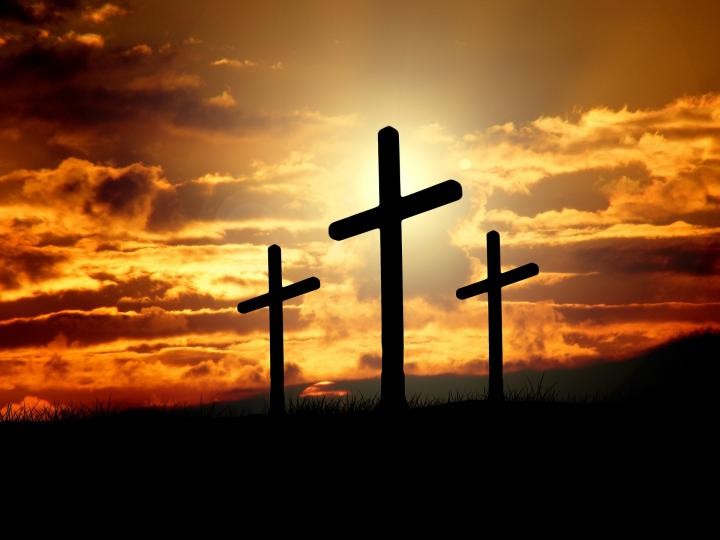What Month Is Easter? Easter is a Christian holiday with a date that shifts each year, raising many questions about how its timing is determined. At WHAT.EDU.VN, we aim to provide clarity on this topic, exploring the methods used to calculate the Easter date, its historical context, and its significance. Discover the lunar cycles and ecclesiastical rules.
1. Easter Date Explained: Understanding the Easter Timing
Easter, a cornerstone of the Christian faith, commemorates the resurrection of Jesus Christ from the dead. Unlike Christmas, which falls on a fixed date, Easter is a movable feast, meaning its date varies each year. This variability often leads to the question: What month is Easter usually in?
- Easter always falls on a Sunday.
- It can occur anytime between March 22 and April 25.
The date is determined by a combination of the lunar cycle and historical traditions, making it a unique and fascinating aspect of the Christian calendar. This section delves into the specifics of how the Easter date is calculated and why it shifts from year to year.
2. Determining Easter: The Role of the Paschal Full Moon
The key to understanding what month is Easter lies in the concept of the Paschal Full Moon. The Paschal Full Moon is the first full Moon that occurs on or after the spring equinox, also known as the vernal equinox. Easter Sunday is then celebrated on the first Sunday following the Paschal Full Moon.
- Spring Equinox: The spring equinox is the time when the sun crosses the celestial equator, marking the beginning of spring in the Northern Hemisphere. The Christian Church simplifies calculations by observing the equinox on March 21, although the astronomical date may vary.
- Paschal Full Moon: The Paschal Full Moon is not necessarily the actual full Moon closest to the spring equinox but is calculated according to ecclesiastical rules.
This method of determining Easter’s date links the Christian holiday to the Jewish Passover, as the Last Supper, which preceded Jesus’ crucifixion, occurred during Passover.
3. Gregorian Calendar vs. Julian Calendar: Why Two Easter Dates?
The question of what month is Easter becomes even more complex when considering the different calendars used by various Christian traditions. While most Western churches follow the Gregorian calendar, many Eastern Orthodox churches adhere to the Julian calendar. This difference in calendars results in different dates for Easter in the two traditions.
- Gregorian Calendar: The Gregorian calendar is the most widely used civil calendar and is based on a solar cycle.
- Julian Calendar: The Julian calendar is an older calendar that differs slightly from the Gregorian calendar, leading to a discrepancy in dates over time.
As a result, Eastern Orthodox Easter can occur between April 4 and May 8, according to the Gregorian calendar. In some years, the two Easter dates coincide, but most years, they are celebrated on different Sundays.
4. Easter Dates in the Coming Years: Planning Ahead
Knowing what month is Easter in the coming years can be helpful for planning religious observances, family gatherings, and other events. Here are the Easter dates for the next few years, according to the Gregorian calendar:
| Year | Easter Sunday (Gregorian calendar) | Eastern Orthodox Church (Julian calendar date converted to Gregorian) |
|---|---|---|
| 2025 | April 20 | April 20 |
| 2026 | April 5 | April 12 |
| 2027 | March 28 | May 2 |
| 2028 | April 16 | April 16 |



These dates illustrate the variability of Easter and the differences between the Western and Eastern Christian traditions.
5. The Most and Least Common Easter Dates: A Statistical Look
When exploring what month is Easter, it’s interesting to note that some dates are more common than others. Over a 500-year period (from 1600 to 2099 AD), Easter is most often celebrated on either March 31 or April 16.
On the other hand, some Easter dates are quite rare. According to long-term averages, the most unusual Easter date is March 22. The second and third rarest dates are April 24 and March 23, respectively.
6. The Golden Number: An Ancient Calculation Tool
The Golden Number is a value used to show the dates of new Moons for each year, following a 19-year cycle.
The Moon repeats the dates of its phases approximately every 19 years (the Metonic cycle), and the Golden Number represents a year in that cycle. The year of the cycle can then be used to determine the date of Easter.
To Calculate the Golden Number:
Add 1 to any given year and divide the result by 19, ensuring that you calculate to the nearest whole number; the remainder is the Golden Number. If there is no remainder, the Golden Number is 19.
For example, to calculate the Golden Number for 2025, we take 2025 and add 1, resulting in 2026, then divide it evenly by 19, giving us 106 with a remainder of 12. Therefore, the Golden Number for 2025 is 12, meaning 2025 is the 12th year of the Metonic cycle.
7. Easter Traditions Around the World: A Celebration of Spring
While the question of what month is Easter is rooted in religious calculations, the holiday itself is celebrated with a variety of traditions around the world. These traditions often reflect the themes of spring, renewal, and new life.
- Easter Eggs: Decorating and hunting for Easter eggs is a popular tradition in many countries. Eggs symbolize new life and resurrection.
- Easter Bunny: The Easter Bunny is a mythical creature that delivers eggs to children on Easter morning.
- Easter Feasts: Many cultures have special foods associated with Easter, such as lamb, ham, and sweet breads.
- Church Services: Attending church services is an important part of Easter for many Christians.
These traditions add to the richness and diversity of Easter celebrations worldwide.
8. The Etymology of “Easter”: Tracing the Word’s Origins
The word “Easter” has a complex and fascinating history. While the exact origin is unclear, it is believed to have connections to both religious and pagan traditions.
- Pascha: The Latin word “Pascha” comes from “Pesach,” the Hebrew word for Passover. This connection highlights the link between Easter and the Jewish Passover.
- Eostre: Some historians suggest that “Easter” is derived from “Eostre,” the Anglo-Saxon goddess of spring and fertility.
- East: Alternatively, “Easter” may come from an old German word for “east,” which is derived from a Latin word for “dawn.”
The etymology of “Easter” reflects the blending of different cultural and religious influences that have shaped the holiday over time.
9. Easter: More Than Just a Date
Beyond the question of what month is Easter, it’s important to remember the deeper meaning and significance of the holiday. Easter is a time for Christians to celebrate the resurrection of Jesus Christ and the triumph of good over evil.
It is also a time for reflection, renewal, and hope. Whether celebrated with religious services, family gatherings, or festive traditions, Easter is a time for joy and celebration.
10. Easter Recipes: A Culinary Celebration
Traditional Easter dishes include seasonal produce as well as symbols of spring, such as lamb, ham, eggs, asparagus, spring peas, hot cross buns, sweet breads, and carrot cake.
Considered by many to be one of the most iconic easter foods, Greek Easter Bread is a beautiful and delicious bread, often braided and adorned with red-dyed eggs to symbolize the blood of Christ and new life. Its soft, slightly sweet dough is infused with aromatic spices, making it a festive centerpiece for any Easter celebration.
11. Frequently Asked Questions About Easter
To further clarify the topic of what month is Easter, here are some frequently asked questions:
| Question | Answer |
|---|---|
| Why does the date of Easter change every year? | Easter’s date is based on the lunar cycle and the spring equinox, which vary from year to year. |
| What is the Paschal Full Moon? | The Paschal Full Moon is the first full Moon that occurs on or after the spring equinox. |
| Why do Western and Eastern churches celebrate Easter on different dates? | Western churches follow the Gregorian calendar, while many Eastern Orthodox churches follow the Julian calendar. |
| What is the significance of Easter eggs? | Easter eggs symbolize new life and resurrection. |
| What are some traditional Easter foods? | Traditional Easter foods include lamb, ham, sweet breads, and Easter eggs. |
| How is Easter related to Passover? | The Last Supper, which preceded Jesus’ crucifixion, occurred during Passover, linking the two holidays. |
| Where does the word “Easter” come from? | The origin of the word “Easter” is unclear, but it may be related to the Anglo-Saxon goddess Eostre or the word “east.” |
| What is the Golden Number? | The Golden Number is a value used to show the dates of new Moons for each year, following a 19-year cycle. |
| What is Ash Wednesday? | Ash Wednesday is the first day of Lent, the 40-day period of fasting and repentance leading up to Easter. |
| What is Lent? | Lent is a 40-day period of fasting and repentance leading up to Easter. |
12. Unraveling Easter’s Enigma: A Summary of Key Points
Navigating the question of what month is Easter involves understanding the interplay of lunar cycles, historical traditions, and calendar systems.
- Easter is celebrated on the first Sunday after the Paschal Full Moon, which is the first full Moon on or after the spring equinox.
- The use of different calendars by Western and Eastern churches results in different Easter dates.
- Easter is a time for Christians to celebrate the resurrection of Jesus Christ and the themes of renewal and hope.
By understanding these key points, you can gain a deeper appreciation for the complexity and richness of this important Christian holiday.
13. Delving Deeper: Advanced Concepts in Easter Calculation
For those seeking a more in-depth understanding of what month is Easter, there are several advanced concepts to explore. These include:
- The Metonic Cycle: The Metonic cycle is a period of approximately 19 years after which the phases of the Moon recur on the same days of the year.
- Epacts: Epacts are numbers used in the calculation of the date of Easter, representing the age of the Moon on January 1 in a given year.
- Dominical Letter: The Dominical Letter is a letter used to indicate which days of the year are Sundays.
These advanced concepts provide a more detailed understanding of the mathematical and astronomical calculations involved in determining the Easter date.
14. Easter Through the Ages: A Historical Perspective
The history of Easter is as complex and fascinating as the question of what month is Easter. From its roots in the Jewish Passover to its evolution as a distinct Christian holiday, Easter has undergone many changes over the centuries.
- Early Christian Celebrations: Early Christians celebrated Easter as a commemoration of the resurrection of Jesus Christ.
- The Council of Nicaea: In 325 AD, the Council of Nicaea established a uniform method for calculating the date of Easter.
- The Gregorian Reform: In 1582, Pope Gregory XIII introduced the Gregorian calendar, which is now used by most Western churches to determine the date of Easter.
Understanding the historical context of Easter can provide valuable insights into its significance and traditions.
15. Easter and Culture: How the Holiday Influences Art and Literature
The themes of Easter, such as resurrection, renewal, and hope, have inspired countless works of art and literature. From religious paintings and sculptures to poems and novels, Easter has been a source of inspiration for artists and writers throughout history.
- Religious Art: Many famous paintings and sculptures depict scenes from the Easter story, such as the crucifixion and resurrection of Jesus Christ.
- Literature: Easter themes have been explored in a wide range of literary works, from religious poems to contemporary novels.
Exploring the cultural impact of Easter can enrich your understanding and appreciation of the holiday.
16. Beyond Religion: Secular Observances of Easter
While Easter is primarily a religious holiday, it is also celebrated in secular ways by people of all backgrounds. These secular observances often focus on the themes of spring, renewal, and family.
- Easter Egg Hunts: Easter egg hunts are a popular activity for children, regardless of their religious beliefs.
- Spring Festivals: Many communities hold spring festivals to celebrate the arrival of warmer weather and the blooming of flowers.
- Family Gatherings: Easter is often a time for families to come together and enjoy a special meal.
These secular observances reflect the broader cultural significance of Easter as a celebration of life and renewal.
17. Easter and the Environment: Celebrating Spring Responsibly
As a holiday that celebrates the arrival of spring, Easter provides an opportunity to reflect on our relationship with the environment. By making conscious choices about how we celebrate Easter, we can minimize our environmental impact and promote sustainability.
- Eco-Friendly Easter Eggs: Use natural dyes and biodegradable materials for Easter eggs.
- Sustainable Easter Baskets: Fill Easter baskets with locally sourced, sustainable products.
- Reduce Waste: Minimize waste by using reusable decorations and avoiding single-use plastics.
By celebrating Easter in an environmentally responsible way, we can honor the spirit of renewal and new life that the holiday represents.
18. Finding Answers Made Easy with WHAT.EDU.VN
Do you still have questions about what month is Easter? Or perhaps you have other questions that need answers? At WHAT.EDU.VN, we are dedicated to providing you with quick, accurate, and free answers to all your questions.
We understand the challenges of finding reliable information online, which is why we have created a platform where you can ask any question and receive answers from knowledgeable individuals. Whether you are a student, a professional, or simply curious about the world around you, WHAT.EDU.VN is here to help.
19. Need Answers? Ask Us Anything at WHAT.EDU.VN
WHAT.EDU.VN is more than just a question-and-answer website. We are a community of learners and educators, all dedicated to sharing knowledge and helping each other.
- Free Answers: Our service is completely free to use. You can ask as many questions as you like and receive answers without any cost.
- Quick Responses: We strive to provide answers to your questions as quickly as possible. Our community of experts is always ready to help.
- Accurate Information: We are committed to providing accurate and reliable information. Our answers are carefully reviewed to ensure quality.
Join our community today and experience the convenience of having your questions answered quickly and accurately.
20. Your Questions Answered for Free: Join WHAT.EDU.VN Today
Don’t let your questions go unanswered. Visit WHAT.EDU.VN today and ask us anything. We are here to help you find the answers you need, so you can learn, grow, and succeed.
Whether you’re curious about Easter, science, history, or anything else, our team of experts is ready to assist you. Unlock a world of knowledge and discover the power of free information at WHAT.EDU.VN.
Tired of searching endlessly for answers? At WHAT.EDU.VN, we provide a platform where you can ask any question and receive clear, concise, and accurate answers for free.
We understand the frustration of encountering paywalls or unreliable information. That’s why we’ve created a space where knowledge is accessible to everyone, regardless of their background or financial situation.
Attention: Are you struggling to find answers to your burning questions? Do you need reliable information quickly and easily?
Interest: WHAT.EDU.VN offers a unique platform where you can ask any question and receive free, accurate answers from a community of experts.
Desire: Imagine having a wealth of knowledge at your fingertips, ready to provide you with the answers you need to excel in your studies, career, and personal life.
Action: Visit WHAT.EDU.VN today and ask your first question. Experience the ease and convenience of having your questions answered for free.
Ask Your Questions Now! Visit WHAT.EDU.VN today!
For any inquiries, you can reach us at:
- Address: 888 Question City Plaza, Seattle, WA 98101, United States
- WhatsApp: +1 (206) 555-7890
- Website: WHAT.EDU.VN
We look forward to helping you find the answers you need!
Let us help you find the answers you’re looking for. Visit what.edu.vn today!